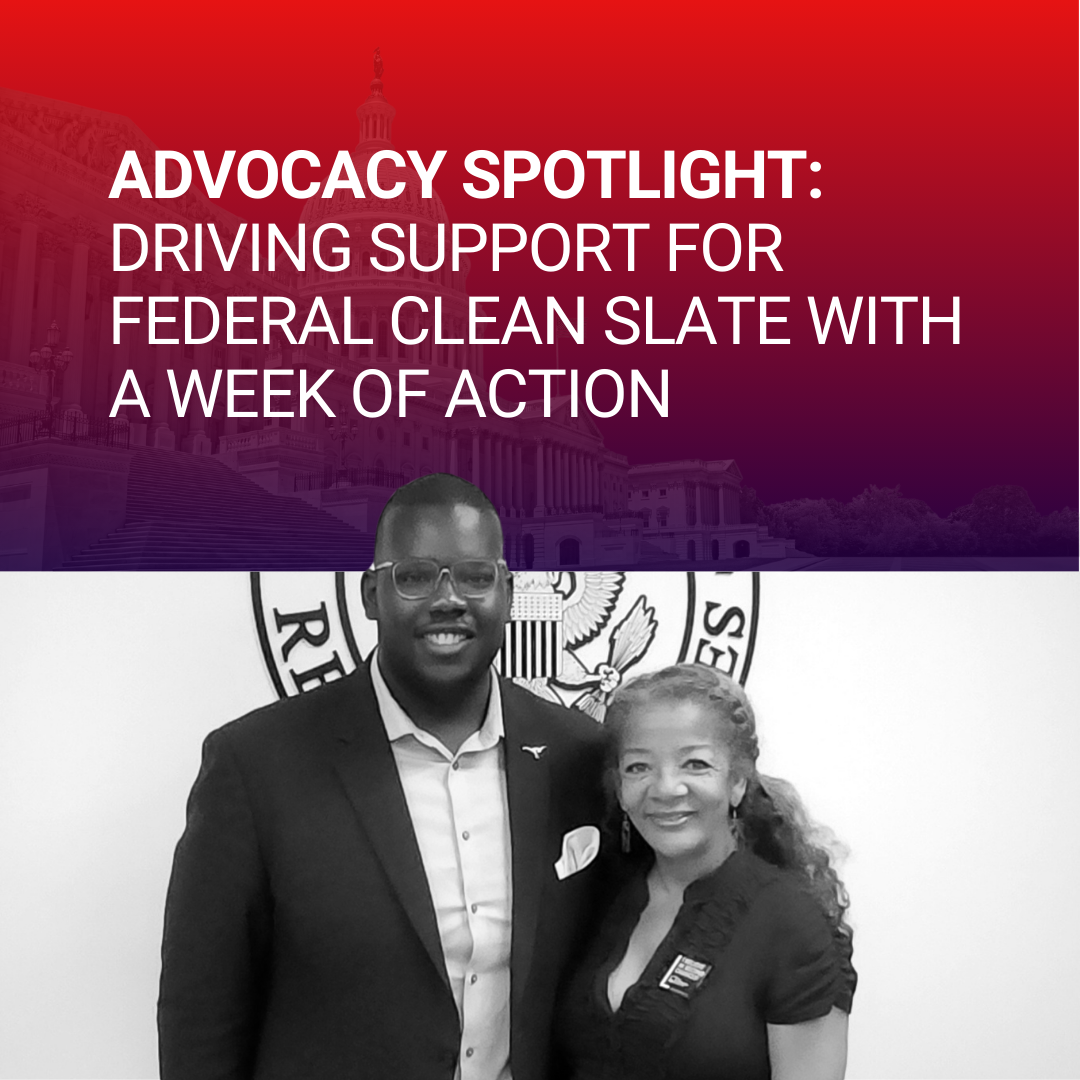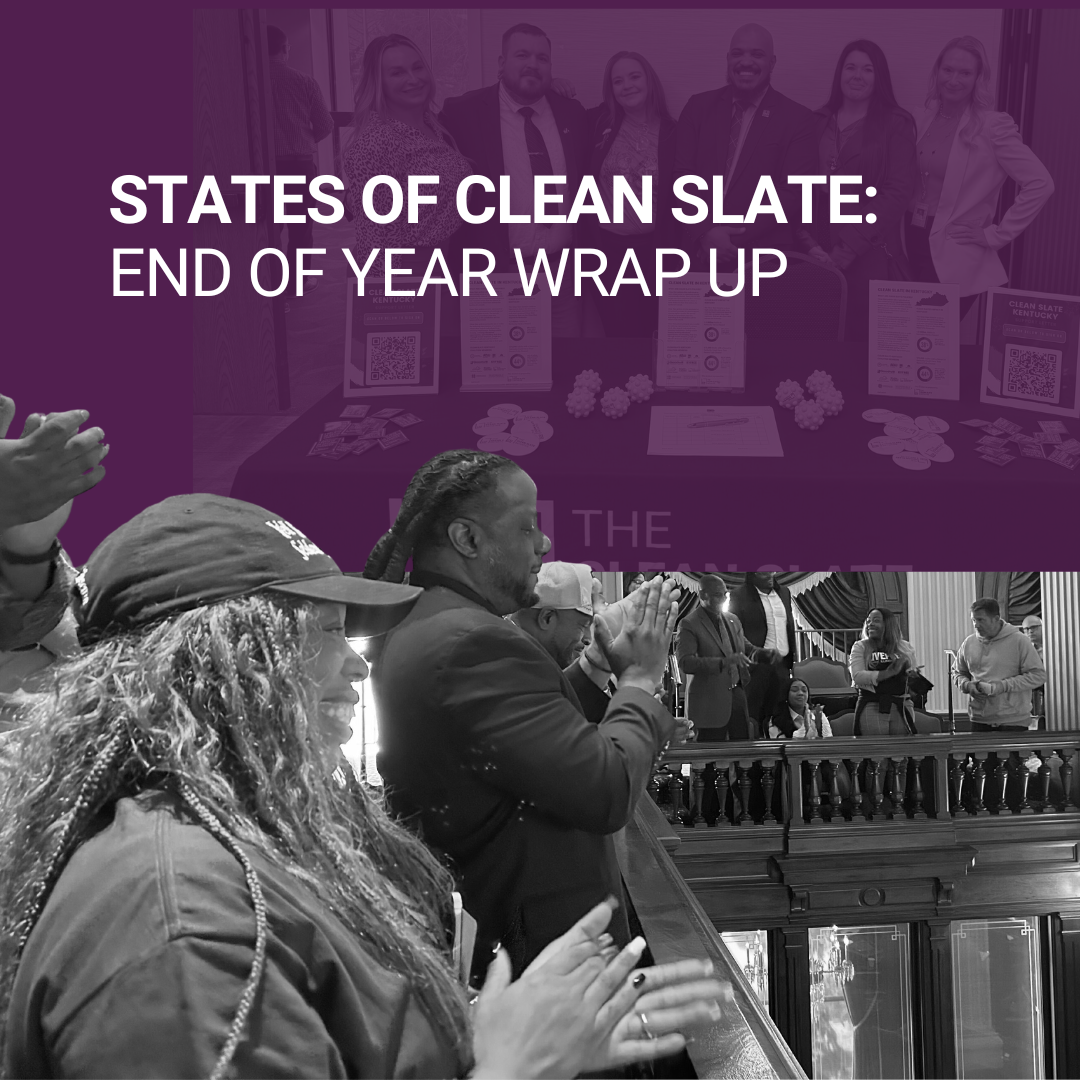Second Chances on the National Stage: Clean Slate Act and Fresh Start Act Reintroduced in Congress
.png)
Photos shown above by Shannon Finney / Getty Images for The Clean Slate Initiative. For more images from the press conference, visit our event album on GettyImages.com.
At a powerful press conference in Washington, D.C. on April 30, bipartisan lawmakers, advocates, stakeholders, and directly impacted individuals celebrated the reintroduction of the Clean Slate Act and Fresh Start Act — two critical pieces of legislation that would help people in America move beyond their old arrest and conviction records and seize a second chance at a better future.
These bills aren’t just about sealing records. They’re about clearing a path to opportunity, dignity, and economic strength. They recognize a simple but powerful truth: that no one should be forever defined by a past mistake, and that redemption is not a partisan value, but an American one.
A Federal Path to Redemption: The Clean Slate Act (S. 1580 & H.R. 3114)
For too long, there has been no formal process for sealing federal arrest or conviction records — even for individuals who have long since served their time and remained crime-free. The Clean Slate Act, led by Senators Lisa Blunt Rochester (D-DE) and Rand Paul (R-KY) in the Senate and Representatives McBath (D-GA-6) and Moran (R-TX-1) in the House, would change that.
The bill would create the first-ever federal system to automatically seal certain low-level records, including nonviolent federal marijuana offenses. In doing so, it ensures that the promise of redemption doesn’t stop at a state line but becomes a national reality. Clean Slate would allow people who have rebuilt their lives to finally move forward without old records acting as barriers to jobs, housing, education, and opportunity.
As Sen. Blunt Rochester put it, “Clean Slate is about hope, dignity, and breaking barriers to the second chance that people have earned.”
Helping States Scale Success: The Fresh Start Act (H.R. 3111)
While states have led the way — with 12 states across the political spectrum already passing Clean Slate laws — challenges remain in implementing these reforms. The Fresh Start Act, reintroduced by Representatives Laurel Lee (R-FL) and Sydney Kamlager-Dove (D-CA), addresses these challenges head-on.
The Fresh Start Act would provide federal grants to states that automate their record-sealing processes — cutting red tape, modernizing outdated systems, and ensuring that second chances are a reality, not a privilege only available to those with time, money, or legal assistance.
Rep. Lee summed it up perfectly: “Standing here today with Rep. Kamlager-Dove, reintroducing this legislation together, is proof that when we focus on solutions and shared values, we can work across the aisle to deliver real results.”
Why Now?
The stakes could not be higher. Nearly one in three Americans lives with some form of an arrest or conviction record, and barriers tied to old records cost our economy billions each year in lost productivity. In an era of worker shortages and economic uncertainty, second chances aren’t just a moral imperative — they are a workforce development and economic growth strategy.
Clean Slate policies lead to better employment outcomes, increased public safety, stronger families, and more stable communities. Sealing records for those who have earned it reduces recidivism and strengthens the very fabric of our society.
The Clean Slate Act and Fresh Start Act remind us that justice is not just about accountability — it’s about opportunity. It’s time for Congress to act.
.avif)
.avif)



























.png)

.png)
